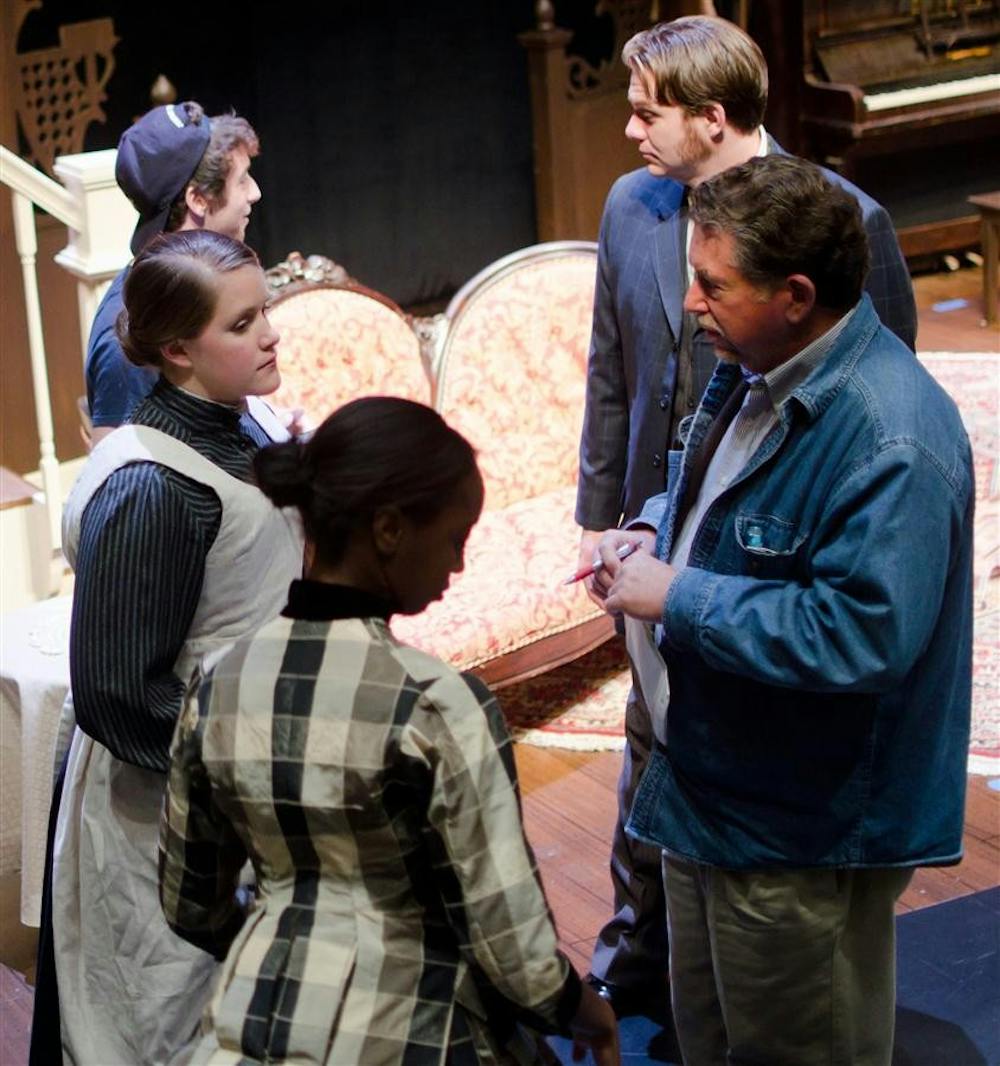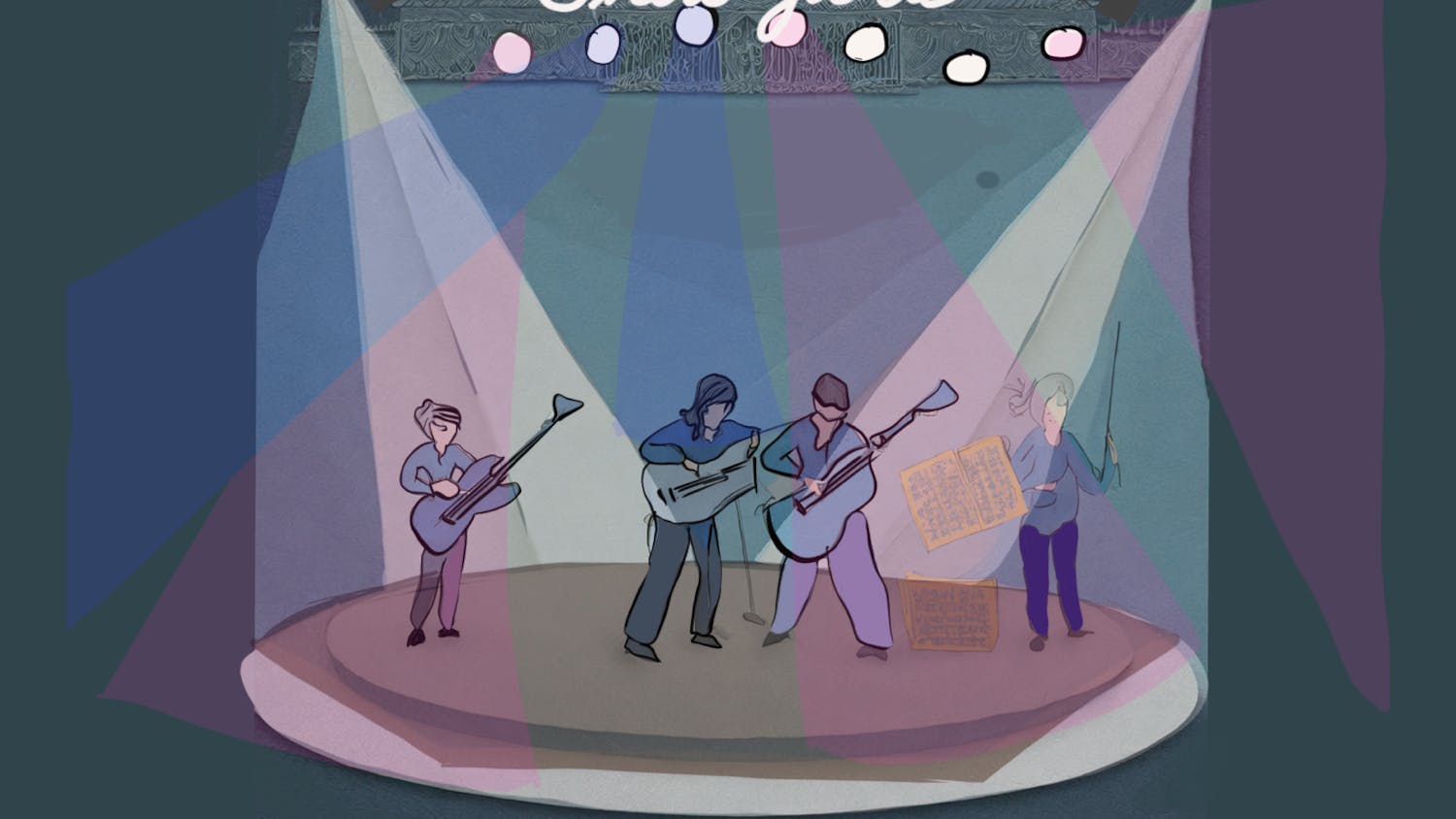Love. Hysteria. Vibrators.
These are three common themes of the IU Department of Theater & Drama’s newest production.
“In the Next Room, or the vibrator play,” is a comedy written by Sarah Ruhl.
The show will open 7:30 p.m. Friday at the Wells-Metz Theatre.
Set in 1875 during the expansion of electricity to homes and residences, the play revolves around the use of a vibrator as treatment for “female hysteria.”
An “illness” common in the late 19th and early 20th centuries, “female hysteria” was widely diagnosed by the medical community of the time, according to an article in the New York Times.
Symptoms included anxiety, irritability, nervousness and erotic fantasy, and it was common for women of this period to receive medical treatment in the form of sexual stimulation from the treating physician.
The vibrator, which was invented in the late 1800s, was created to make administration of the treatment easier, the article said.
Though eventually removed from medical books, the diagnosis and treatment of this illness creates universal themes that are relevant in 2011, said Dale McFadden, director and IU theater faculty member.
“I think the play shows that sex is one thing, but intimacy is its own scarier entity that requires a certain kind of bravery to achieve,” said junior Jacque Emord-Netzley, who portrays Ms. Daldry in the production.
Love is also an important element of the play, and the search for it is a catalyst for the characters’ actions, McFadden said.
“Any relationship that is based on love requires a leap of faith,” McFadden said.
“Ultimately, it’s a love story that goes right, not wrong.”
Still, given the ready supply of humor found in such a subject, it was important to keep that humor from becoming cheap, McFadden said.
“Laughs come from a moment of insight,” he added. The show show offers reality-based humor, and characters find themselves in situations in which they must deal with serious issues.
The production pairs this deeper humor with a realistic point of view.
“The play, though it is a sex-comedy, is much more poignant than its title would suggest,” Emord-Netzley said. “It deals with love and intimacy and what it means to have a lack of them.”
In the end, a key lesson of the play is to take responsibility for your own happiness, McFadden said.
“No one can cure you of your troubles,” he said. “The best way to find out who you are is through your relationships with other people.”
'In the Next Room' provides more than cheap laughs

Get stories like this in your inbox
Subscribe





